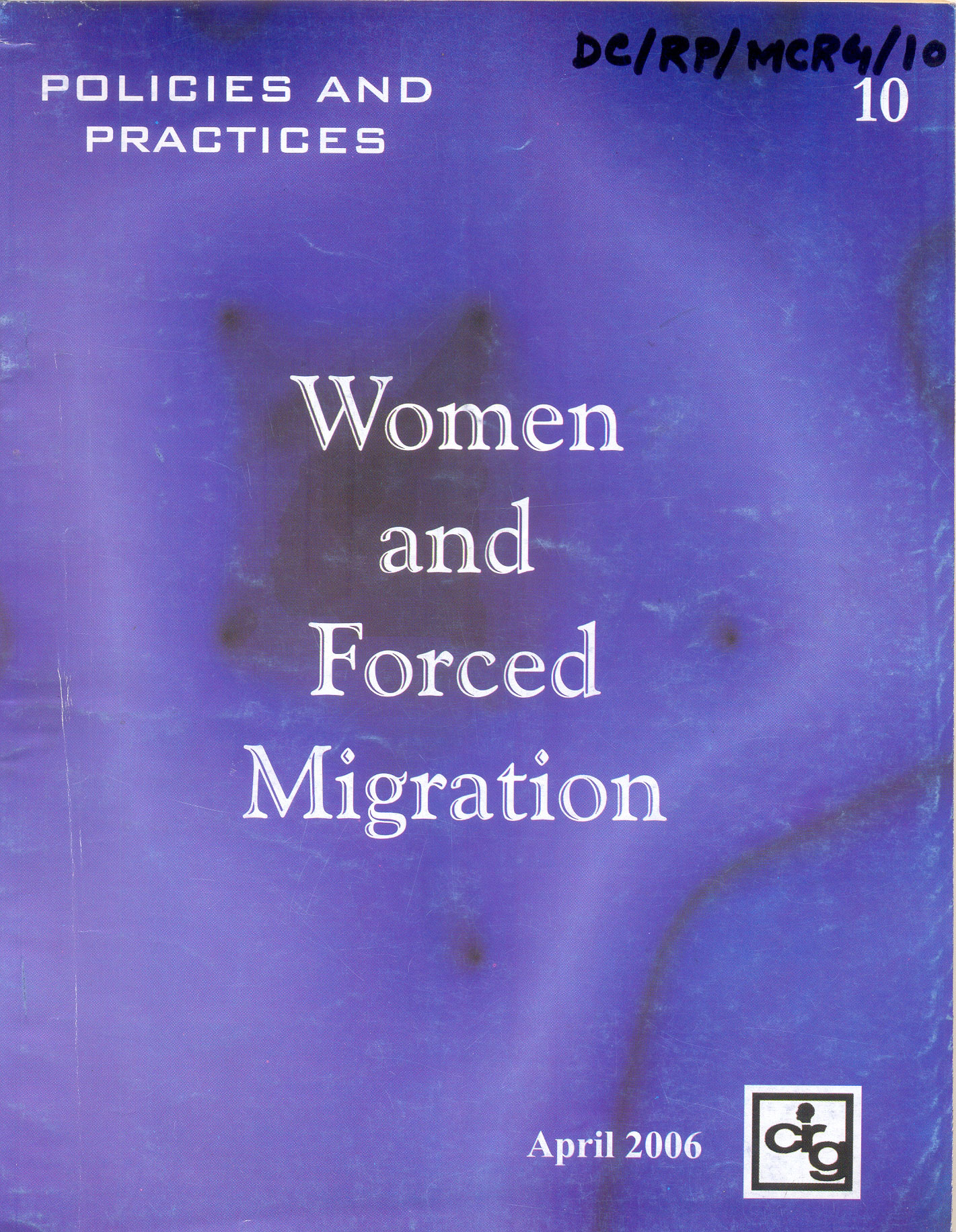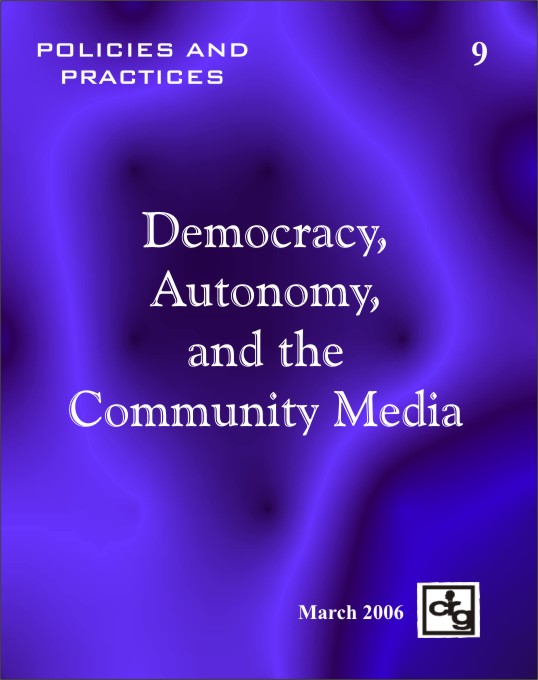|
|
 |
|||
| 2006 |
|
|||
|
Policies
and Practices 11 |
|

|
||
|
Policies
and Practices 10 This collection highlights the range of women’s experiences as of displacement appearing in different issues of Refugee Watch in form of articles, notes, reports and researches. These articles challenge the notion that refugee women are mere victims. These writings try to portray the different roles that women play to cope with displacement. The collection points out that refugee women are first to address the question of income generation and many other coping mechanisms precisely because it is their responsibility to put food in the mouths of their family and fight for their survival. Yet rehabilitation and care is hardly ever built on a premise of gender sensitivity. Compiled and Edited by Paula Banerjee |
 |
|||
|
Policies
and Practices 9 This analytical essay traces the evolution of community media in the context of the emergence of knowledge based societies increasingly relying on Internet, World Wide Web and other digital communication technologies. It also outlines the global impact of programming for information, education and entertainment in industrialized nations through radio, television via national broadcasting and satellite systems. It further delineates the nature of this twentieth century phenomenon called 'information explosion' in the wake of an interdependent and interconnected world in which the nation state has become culturally heterogeneous. In this complex and global context, the paper stresses the importance, if not essentiality, of participatory communication. It argues that, on one hand, there is a surfeit of information and communication technologies; on the other hand, there is also a massive reservoir of rural poor in developing countries for whom the top down information glut and its content are irrelevant, simply because, they do not address their concerns and needs. Consequently, the paper focuses on community centered sustainable development through multifaceted 'audience centered' communication strategies. These play a catalytic role in creating decentralized project structures that strengthen the democratic process by bottom-up two way interactivity, equitable access, ownership and self management. Within the above paradigmatic shift in policy, practice and application of development communication tools such as folk, street theatre, group radio, digital video and Internet, the paper further probes the various theoretical perspectives about community media. This conceptual framework, thus, leads the paper to profile the structuring of democratic communication projects in Europe and Asia that have been initiated by civil society stakeholders, non-governmental organizations and international organizations like UNESCO to fight the marginalization of rural communities in today's information society. Finally, the paper makes a forceful argument that structural change which involves redistribution of power at the grassroots, within or outside the fold of rural local self government systems, should occur first, in order to, firmly establish participatory communication policies for propelling rural community development in the developing world.
Essay by
Abhilaksh Likhi
|
|
|||
